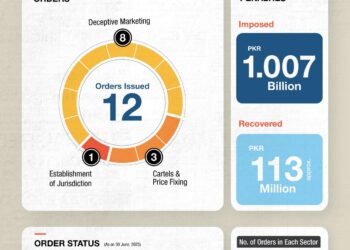ISLAMABAD: The Power Division claimed on Wednesday that savings from revised or terminated contracts with 29 Independent Power Producers (IPPs) and Government Power Plants (GPPs) will amount to Rs 3.498 trillion over the remaining tenure, ranging from 3 to 20 years.
Presided over by Senator Mohsin Aziz, the Committee was informed that the Federal Cabinet has not ratified the decision of the Economic Coordination Committee (ECC) regarding the reduction in buyback rates for net metering consumers, from Rs 27 to Rs 10 per unit for new connections. The Prime Minister has directed the Power Division to review the policy in consultation with stakeholders and bring forward a revised proposal.
Regarding the contracts with IPPs, the Committee was informed that, following the efforts of the Task Force, Power Purchase Agreements (PPAs) with six IPPs have been terminated. Revised agreements for tariff reductions have also been initialed with nine Bagasse Power Plants, including Shah Taj Sugar Mill, and 14 IPPs under the Power Policies of 1994 and 2002.
According to the relevant summaries of the Ministry of Energy (Power Division), the early termination of five IPPs would result in total savings of around Rs 411 billion. Additionally, savings from revised tariff terms with eight Bagasse Power Projects and 14 IPPs under the Power Policies of 1994 and 2002 are estimated at Rs 238 billion and Rs 922 billion, respectively, over the remaining life of these projects.
Furthermore, negotiations with GENCOs and government RLNG Power Plants have also been concluded and approved by the Cabinet. The cumulative reduction in future capacity payments and related obligations resulting from these negotiations is Rs 354 billion from GENCOs (Nandipur & Guddu), Rs 1,808 billion from Haveli Bahadur Shah, Balloki, and QATPL Power Plants, and Rs 498 billion from PTPL.
The Standing Committee was informed that the impact of these negotiations and tariff reductions will be passed on to consumers once the tariff modifications are approved by the National Electric Power Regulatory Authority (NEPRA). Following this, the Prime Minister will make an announcement regarding the tariff reduction.
During the proceedings, the Minister for Power, Sardar Awais Leghari, and Opposition Leaders in the Senate, including Senator Shibli Faraz, exchanged heated remarks regarding the policies, the incompetence of the Power Division, and a reported announcement by the Prime Minister to reduce electricity tariffs by Rs 8 per unit.
Leghari defended both the Prime Minister and himself, as well as the policies of the incumbent government concerning the power sector. He added that the IMF’s SLA is proof that the government’s policies are moving in the right direction. He further mentioned that revised contracts are being sent to NEPRA for regulatory processing, and savings will be included in the Quarterly Tariff Adjustment (QTA) before a formal announcement.
The Chairman of the Standing Committee expressed concern that 40 percent of the industry had already been devastated due to high energy prices and the Federal Board of Revenue (FBR), with another 20 percent set to shut down, leaving only 40 percent of the industry to survive. He stated that IPPs had over-invoiced their expenditures and are the real culprits.
Senator Shibli Faraz expressed concerns that investors are apprehensive about changes in policies mid-way, which would discourage new investments. He called for the names of all ministers and officials responsible for expensive power plants to be shared, for the purpose of “name and shame.” He argued that government policies are knee-jerk, while the Minister defended these policies, stating that the government’s approach is correct.
In response to questions, the Power Minister stated that there had been pressures from ambassadors when the Task Force called for renegotiations on contracts. He also severely criticized the Power Division for altering the existing Net Metering policy.
The Chief Executive Officer (CEO) of CPPA-G informed the committee that approximately 40 wind and solar projects are resisting contract revisions, citing lower dispatches, which are financially damaging to them. They warned that, in the event of contract revisions, they may face bankruptcy.
Regarding the arrangement of a loan of Rs 1.23 trillion from banks, the Minister stated that the amount would be paid from the existing Debt Servicing Surcharge (DSS). After this process, which is expected to be completed next month, the power sector’s circular debt, currently Rs 2.4 trillion, would be reduced to Rs 400 or Rs 450 billion.
The Chairman of the Standing Committee expressed concern that the impact of the revisions in contracts might not be passed on to consumers.
On the Net Metering policy, the Power Minister clarified that there would be no change for existing consumers, but changes would be made for new net metering consumers. Ends
Govt. eyes PIA asset sale by year-end amid push for transparency, job security
ISLAMABAD: Prime Minister, Shehbaz Sharif is moving ahead with plans to offload the operational assets of Pakistan International Airlines Company...
Read more













